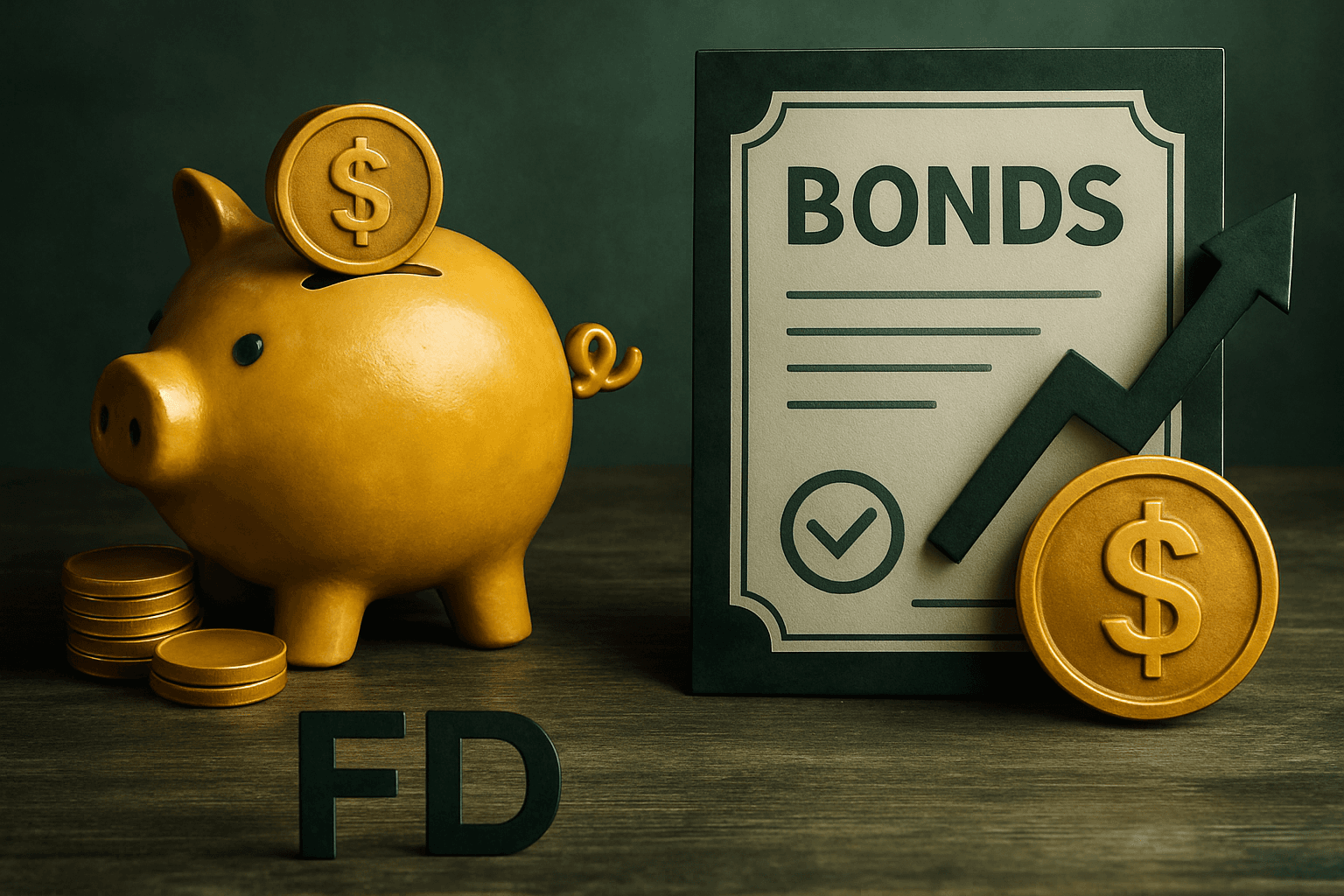Understanding Fixed Deposits: A Comprehensive Guide
Fixed Deposits (FDs) have been the cornerstone of conservative investment strategies in India for decades. Despite the emergence of various modern investment options, FDs continue to hold their ground as one of the safest and most predictable investment vehicles. This comprehensive guide will help you understand everything about fixed deposits and how to make the most of them.
What is a Fixed Deposit?
A Fixed Deposit is a financial instrument where you deposit a lump sum amount with a bank or Non-Banking Financial Company (NBFC) for a predetermined period at a fixed interest rate. The principal amount and interest are guaranteed, making it an ideal choice for risk-averse investors.
Types of Fixed Deposits
1. Regular Fixed Deposits
Standard FDs where you deposit money for a fixed tenure and receive interest either monthly, quarterly, half-yearly, or annually.
2. Tax-Saving FDs (Section 80C)
Special FDs with a mandatory 5-year lock-in period that offer tax deductions up to ₹1.5 lakhs under Section 80C.
3. Senior Citizen FDs
Designed for investors above 60 years, these FDs typically offer 0.25% to 0.75% higher interest rates.
4. Corporate FDs
Offered by NBFCs and companies, these usually provide higher interest rates but carry higher risk compared to bank FDs.
5. Flexi FDs
Allow partial withdrawals without breaking the entire deposit, providing better liquidity.
Current Interest Rate Scenario
As of 2022, FD interest rates in India typically range from:
- Public Sector Banks: 3.0% - 6.5% per annum
- Private Banks: 3.5% - 7.0% per annum
- Small Finance Banks: 4.5% - 8.5% per annum
- NBFCs: 6.0% - 10.0% per annum
Tax Implications of Fixed Deposits
Interest Taxation
Interest earned on FDs is fully taxable as per your income tax slab. Banks deduct TDS @ 10% if interest exceeds ₹40,000 in a financial year (₹50,000 for senior citizens).
TDS Considerations
- Submit Form 15G/15H if your total income is below taxable limit
- Provide PAN to avoid higher TDS rates
- Consider breaking large FDs into smaller ones to stay below TDS limits
Strategies to Maximize FD Returns
1. FD Laddering
Spread your investment across FDs with different maturity periods. This provides regular liquidity and helps you reinvest at potentially higher rates.
2. Compare Rates Regularly
Different banks offer different rates. Compare rates across banks and choose the best option.
3. Consider Cumulative FDs
If you don't need regular income, opt for cumulative FDs where interest compounds, leading to higher overall returns.
4. Timing Your Investments
Monitor interest rate cycles. Invest in longer-term FDs when rates are high and shorter-term FDs when rates are expected to rise.
Advantages of Fixed Deposits
- Safety: Principal protected up to ₹5 lakhs per depositor per bank under DICGC
- Predictability: Fixed returns known at the time of investment
- Flexibility: Various tenure options from 7 days to 10 years
- Loan Facility: Can avail loans against FD up to 85-90% of the deposit value
- No Market Risk: Returns unaffected by market volatility
Limitations to Consider
- Lower returns compared to market-linked investments over long term
- Interest income fully taxable
- Penalty charges for premature withdrawal
- Returns may not beat inflation in low interest rate scenarios
Who Should Invest in FDs?
Fixed Deposits are ideal for conservative investors, those nearing retirement, investors seeking predictable income, and as part of an emergency fund strategy.
💡 Pro Tip: Use FDs for your emergency fund and short-term financial goals. For long-term wealth creation, consider a balanced approach combining FDs with market-linked investments like mutual funds.
Related Articles

FD vs Bonds: Which is better for you?
In the FD vs Bonds debate, understanding risk and return is key. FDs offer guaranteed returns with l...
Read More →
Exploring the concept of digital gold and its significance
Digital gold is revolutionizing how we invest in precious metals. Learn about the benefits, risks, a...
Read More →